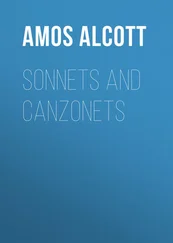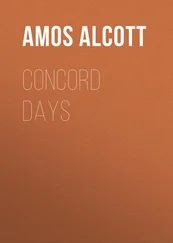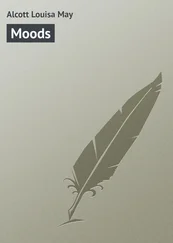Amos Alcott - Tablets
Здесь есть возможность читать онлайн «Amos Alcott - Tablets» — ознакомительный отрывок электронной книги совершенно бесплатно, а после прочтения отрывка купить полную версию. В некоторых случаях можно слушать аудио, скачать через торрент в формате fb2 и присутствует краткое содержание. ISBN: , Жанр: foreign_antique, foreign_prose, на английском языке. Описание произведения, (предисловие) а так же отзывы посетителей доступны на портале библиотеки ЛибКат.
- Название:Tablets
- Автор:
- Жанр:
- Год:неизвестен
- ISBN:http://www.gutenberg.org/ebooks/36825
- Рейтинг книги:4 / 5. Голосов: 1
-
Избранное:Добавить в избранное
- Отзывы:
-
Ваша оценка:
- 80
- 1
- 2
- 3
- 4
- 5
Tablets: краткое содержание, описание и аннотация
Предлагаем к чтению аннотацию, описание, краткое содержание или предисловие (зависит от того, что написал сам автор книги «Tablets»). Если вы не нашли необходимую информацию о книге — напишите в комментариях, мы постараемся отыскать её.
Tablets — читать онлайн ознакомительный отрывок
Ниже представлен текст книги, разбитый по страницам. Система сохранения места последней прочитанной страницы, позволяет с удобством читать онлайн бесплатно книгу «Tablets», без необходимости каждый раз заново искать на чём Вы остановились. Поставьте закладку, и сможете в любой момент перейти на страницу, на которой закончили чтение.
Интервал:
Закладка:
Amos Bronson Alcott
Tablets
BOOK I
PRACTICAL
"Philosophy, the formatrix of judgment and manners, has the privilege of having a hand in everything." – Montaigne.
I
THE GARDEN
"If Eden be on earth at all,
'Tis that which we the country call."
"I never had any desire so strong and so like to covetousness," says Cowley, "as that one which I have had always that I might be master at last of a small house and ample garden, with very moderate conveniences joined to them, and there to dedicate the remainder of my life to the culture of them and the study of nature. Virgil's first wish was to be a wise man, the second to be a good husbandman. But since nature denies to most men the capacity or appetite, and fortune allows but to very few the opportunities or possibility of applying themselves wholly to wisdom, the best mixture of human affairs we can make, are the employments of a country life. It is, as Columella calls it, the nearest neighbor or next in kindred to philosophy. And Varro says the principles of it are the same which Ennius made to be the principles of all nature; earth, water, air, and the sun. There is no other sort of life that affords so many branches of praise to a panegyrist; the utility of it to a man's self, the usefulness or rather necessity of it to all the rest of mankind, the innocence, the pleasure, the antiquity, the dignity."
This wish of the poet's appears to be nearly universal. Almost every one is drawn to the country, and takes pleasure in rural pursuits. The citizen hopes to become a countryman, and contrives to secure his cottage or villa, unless he fail by some reverse of fortune or of character. 'Tis man's natural position, the Paradise designed for him, and wherein he is placed originally in the Sacred Books of the cultivated peoples; their first man being conceived a gardener and countryman by inspiration as by choice.
Gardens and orchards plant themselves by sympathy about our dwellings, as if their seeds were preserved in us by inheritance. They distinguish Man properly from the forester and hunter. The country, as discriminated from the woods, is of man's creation. The savage has no country. Nor are farms and shops, trade, cities, but civilization in passing and formation. Civilization begins with persons, ideas; the garden and orchard showing the place of their occupants in the scale; these dotting the earth with symbols of civility wherever they ornament its face. Thus by mingling his mind with nature, and so transforming the landscape into his essence, Man generates the homestead, and opens a country to civilization and the arts.
In like manner, are the woods meliorated and made ours. Melancholy and morose, standing in their loneliness, we trim them into keeping with our wishes and so adopt them into our good graces, as ornaments of our estates, heraldries of our gentility.
Our human history neither opens in forests nor in cities, but in gardens and orchards whose mythologies are woven into the faith of our race; the poets having made these their chosen themes from the beginning. And we turn, as with emotions of country and consanguinity to the classic pictures of the Paradise, "planted by the Lord God eastward in Eden, and wherein he put the man, whom he had formed to dress and keep it;" where,
"Out of the fertile ground he caused to grow
All trees of noblest kind for sight, smell, taste;
Groves whose rich trees wept odorous gums and balms,
Others whose fruit, burnished with golden rind,
Hung amiable, —
Flowers of all hue, and without thorn the rose;" —
to this; or, of scarce inferior fame, to the gardens of the Hesperides with their golden apples; – or, to those other
" – gardens feigned
Or of revived Adonis, or renowned Alcinous,"
whereof Homer sings:
"Without the hall and close upon the gate
A goodly orchard ground was situate
Of near ten acres, about which was led
A lofty quickset. In it flourished
High and broad fruit trees that pomegranates bore;
Sweet figs, pears, olives, and a number more
Most useful plants did there produce their store,
Whose fruits the hardest winter could not kill,
Nor hottest summers wither. There was still
Fruit in his proper season; all the year
Sweet zephyr breathed upon them blasts that were
Of varied tempers: these, he made to bear
Ripe fruits; these blossoms; pear grew after pear,
Apple succeeded apple, grape the grape,
Fig after fig; Time made never rape
Of any dainty there. A sprightly vine
Spread here her roots, whose fruit a hot sunshine
Made ripe betimes; there grew another green,
Here some were gathering; here some pressing seen;
A large allotted several each fruit had,
And all th' adorn'd grounds their appearance made
In flower and fruit."
Or again to those preferred by the royal guest of Solomon above all other splendors of his court,
"Though she on silver floors did tread,
With bright Assyrian carpets on them spread,
To hide the metal's poverty;
Though she looked up to roofs of gold,
And naught around her could behold
But silk and rich embroidery,
And Babylonian tapestry,
And wealthy Hiram's princely dye;
Tho' Ophir's starry stones met everywhere her eye,
Though she herself and her gay host were drest
With all the shining glories of the East, —
When lavish art her costly work had done,
The honor and the prize of bravery
Was by the garden from the palace won;
And every rose and lily there did stand
Better attired by nature's hand;
The case thus judged against the king you see,
By one that would not be so rich, though wiser far than he."
So the orchard of Academus suggests the ripest wisdom and most elegant learning of accomplished Greece.
Thus we associate gardens and orchards with the perfect condition of mankind. Gardeners ourselves by birthright, we also mythologize and plant our Edens in the East of us, like our ancestors; the sacredness of earth and heaven still clinging to the tiller of the ground. Him we esteem the pattern man, the most favored of any. His labors have a charming innocency. They yield the gains of a self-respect denied to other callings. His is an occupation friendly to every virtue; the freest of any from covetousness and debasing cares. It is full of honest profits, manly labors, and brings and administers all necessaries; gives the largest leisure for study and recreation, while it answers most tenderly the hospitalities of friendship and the claims of home. The delight of children, the pastime of woman, the privilege of the poor man, as it is the ornament of the gentleman, the praise of the scholar, the security of the citizen, it places man in his truest relations to the world in which he lives. And he who is insensible to these pleasures, must lack some chord in the harp of humanity, worshipping, if he worship, at some strange shrine.
Who loves a garden still his Eden keeps;
Perennial pleasures plants, and wholesome harvests reaps.
In laying out a garden there must be protection from the north winds, and if the hills are wooded thus much is gained for profit as for ornament. Every homestead supposes a wood-lot and forest paths for walking and meditation. So the garden claims some shading down from pasture fields and the wilder scenery skirting it. The orchard is an improvement on the garden, and holds a nobler relation to the house and its occupants. Without suitable ornaments and enclosures, these must be set to the side of the farm solely, not to the house, humanity, nor art. Eyes and feet have their claims along with the hands upon the landscape, beauty and convenience having one mind concerning the best ways of dealing with it. It is clear that art has an interest, and should have its hand, in a good well, wholesome cellar, as in the fertility of the soil, the modesty of the grasses and shrubbery. Alleys are best determined by the nature of the grounds. They have a picturesque effect; so have gates, especially when they open into a wood, or are seen in perspective at the end of an avenue or a lane. Winding paths give pleasing surprises, if accommodated to the grounds, take us by the most attractive route; slopes, swells, irregularities of surface, heightening the pleasure attending the prospect. There are spots, too, that plead for their clump of trees, for a single one, for an alcove, an arbor, a conservatory, for a fence, – structure of some sort, be it ever so plain – and these once there, please the eye as if grown there.
Читать дальшеИнтервал:
Закладка:
Похожие книги на «Tablets»
Представляем Вашему вниманию похожие книги на «Tablets» списком для выбора. Мы отобрали схожую по названию и смыслу литературу в надежде предоставить читателям больше вариантов отыскать новые, интересные, ещё непрочитанные произведения.
Обсуждение, отзывы о книге «Tablets» и просто собственные мнения читателей. Оставьте ваши комментарии, напишите, что Вы думаете о произведении, его смысле или главных героях. Укажите что конкретно понравилось, а что нет, и почему Вы так считаете.












